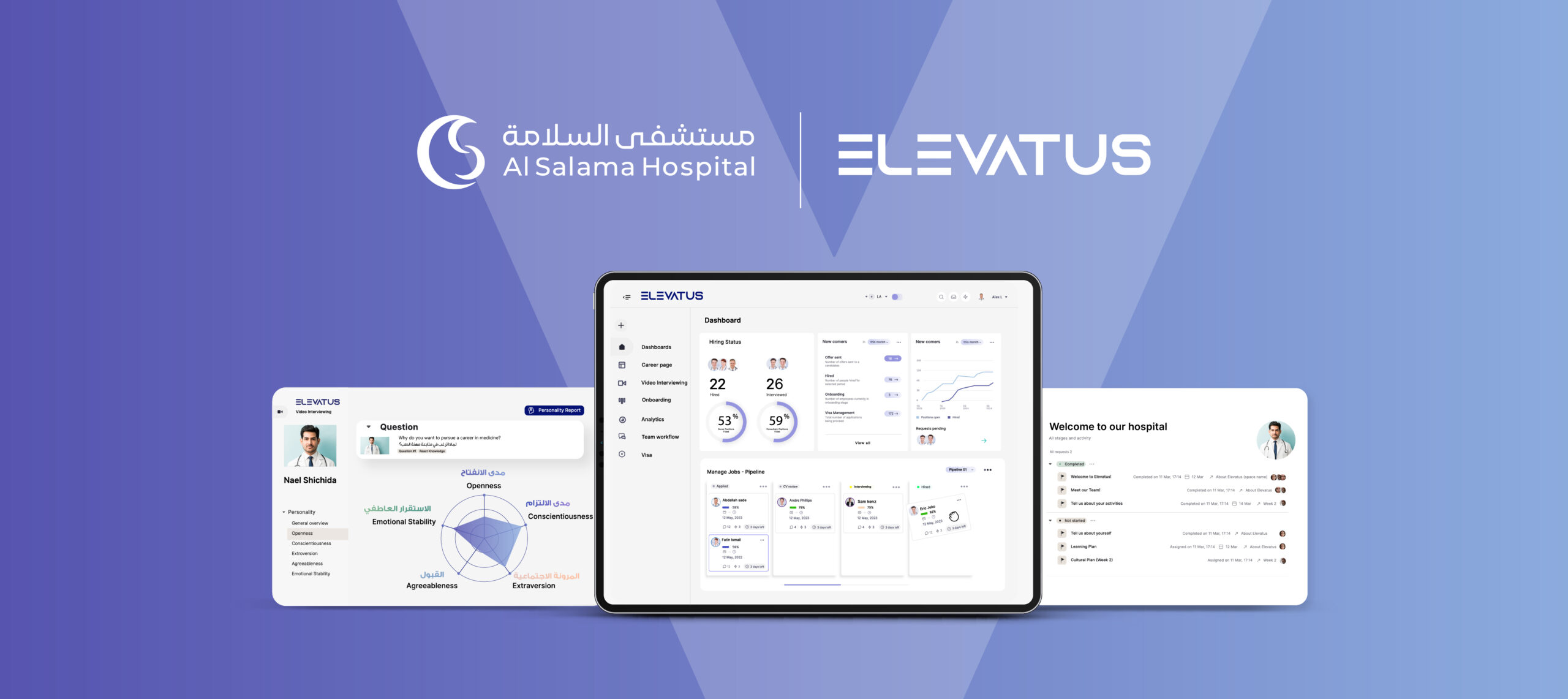
General
Cracking the Code: The Characteristics, Definition, and Examples of a Structured Interview
March 27, 2023



Kiran Kazim
Content Writer
Have you ever heard of the saying “there’s a method to the madness”? This couldn’t be truer when it comes to structured interviews! Picture this: a company is looking for an awesome new sales representative that can convert clients faster than a breeze. With hundreds of resumes and cover letters flooding in, how can hiring managers possibly decide who to invite for an interview?
The answer is simple: a structured interview process. By utilizing this method, employers can assess candidates based on the same set of criteria and questions, ensuring that the process is both fair and objective.
In this blog, we will take a closer look at structured job interviews and explore their characteristics, definitions, and examples. So, let’s dive in and learn how to crack the code!
The Importance of Different Types of Interviews in the Hiring Process


When it comes to hiring the right candidate, the interview process plays a crucial role. Not to mention, there are several types of interviews that companies can use, each with its own set of advantages and disadvantages. These include unstructured job interviews, behavioral interviews, panel interviews, and structured job interviews. While unstructured ones are more casual and free-flowing, they can be subjective and unreliable.
On the other hand, behavioral interviews focus on past experiences and behavior, providing a better indication of future performance. Whereas panel interviews involve multiple interviewers and are useful for evaluating candidates from different perspectives.
However, structured employee interviews have gained popularity in recent years due to their objective and fair nature. For example, in a structured job interview, all candidates are asked the same set of questions, allowing for a standardized evaluation process. This not only provides a level playing field for all candidates but also allows for a more accurate assessment of their skills and experience.
More specifically, the purpose of this blog is to explore the characteristics and benefits of structured job interviews, helping you understand how they work and why they are important in the hiring process. By using structured job interviews, companies can reduce bias and increase the likelihood of hiring the best candidate for the job.
One of the main characteristics of structured job interviews is their consistency. Every candidate is asked the same set of questions, reducing the risk of variation in the evaluation process. This allows for more objective and fair decision-making, as all candidates are assessed using the same criteria.
Even for this process to be as objective as possible, transcribing the interviews makes it possible to obtain in detail everything said in the interview, without forgetting anything important, and avoiding subjectivities.
Additionally, structured employee interviews also help to improve the reliability and validity of the hiring process. By evaluating candidates based on a standardized set of questions, companies can make more informed decisions on who to hire.
Structured job interviews are the secret weapon in the hiring process. By providing an objective and equitable assessment of candidates, they enable companies to make informed hiring decisions based on standardized criteria. In short, structured employee interviews are the game-changer your hiring process has been waiting for.
So What is a Structured Interview?


Simply put, a structured job interview is a standardized method of interviewing candidates. It involves asking each candidate the same set of questions in a predetermined order, allowing for a fair and objective evaluation process. It’s like a recipe – follow the steps in the same order each time and you’ll end up with a consistent and delicious result!
On a lighter note, structured employee interviews are different from unstructured employee interviews, which are more casual and free-flowing. In an unstructured job interview, the interviewer has more flexibility in the questions they ask and the order in which they ask them. While this may seem more relaxed, it can lead to inconsistency in the evaluation process and can result in bias towards certain candidates.
The structure of a structured interview can vary depending on the company and the position being hired for. Generally, structured job interviews consist of a set of questions that are related to the job requirements and skills needed for the position. These questions are designed to assess the candidate’s abilities and experience in a standardized way.
Structured interviews aren’t just any old interview – they’re the creme-de-la-creme of the hiring process! With a mix of open-ended and closed-ended questions, they strike the perfect balance. Open-ended questions give candidates the chance to really show off their skills and experience, while closed-ended questions offer specific options to choose from. It’s the perfect recipe for a comprehensive evaluation of the candidate that’s just right!
Characteristics of a Structured Interview
Structured interviews are like superheroes in the world of hiring! They swoop in and provide a fair and objective evaluation of candidates, but what makes them so powerful? Let’s take a closer look at some of the key characteristics that make structured interviews important and valuable:
Predetermined Questions: Each candidate is asked the same set of questions in a predetermined order. This helps to ensure consistency in the evaluation process and reduces the risk of bias towards certain candidates.
Standardized Rating System: Structured job interviews often use a standardized rating system to evaluate each candidate’s responses. This allows for a more objective assessment of each candidate’s skills and experience.
Job-Related Questions: The questions in such interviews are designed to assess the candidate’s abilities and experience as they relate to the job requirements. This helps to ensure that the evaluation process is focused on the skills and experience that are most important for the position.
A Mix of Different Question Types: Structured interviews may include a mix of open-ended and closed-ended questions. Open-ended questions allow the candidate to provide more detailed answers, while closed-ended questions provide specific options for the candidate to choose from. This mix of question types helps to provide a more comprehensive evaluation of the candidate.
Trained Interviewers: To ensure consistency and objectivity in the evaluation process, structured interviews are often conducted by trained interviewers. These interviewers are familiar with the job requirements and the evaluation criteria and can ask the questions in a consistent and professional manner.
Structured Interview vs. Unstructured Interview


Have you ever been in an interview where you had no idea what to expect? You know, the type of interview where the questions seem to come out of nowhere, and you’re left feeling like you missed the mark? That’s what we call an unstructured interview.
On the other hand, a structured employee interview is like following a recipe –you know exactly what questions will be asked and how you’ll be evaluated. It’s the difference between cooking a meal without a recipe and cooking a meal with one.
The main advantage of a structured interview is that it provides consistency. Every candidate is asked the same questions and evaluated based on the same criteria. This makes it easier for interviewers to compare candidates and make informed decisions.
In contrast, unstructured interviews can be unpredictable, as the interviewer can ask any question that comes to mind. This can make it difficult for interviewers to make fair evaluations and can lead to inconsistent hiring decisions.
Another advantage of structured interviews is that they tend to be more objective. Because the questions and evaluation criteria are predetermined, interviewers are less likely to be influenced by their personal biases. This means that candidates are evaluated based on their qualifications and experience, rather than the interviewer’s opinions.
So, if you’re preparing for an interview, it’s important to know what type of interview you’ll be having. If it’s a structured interview, make sure you study the job requirements and prepare answers to common questions. If it’s an unstructured employee interview, be ready to think on your feet and showcase your personality and work style.
In conclusion, structured interviews are like a recipe for success, while unstructured interviews can leave you feeling like you’re cooking without a plan. Make sure you know what type of interview you’ll be having and prepare accordingly.
Structured Interview vs. Unstructured Interview


When it comes to conducting interviews, there are two primary types to consider: structured and unstructured. While both can have their advantages, structured interviews are generally preferred due to their objective and consistent nature.
Structured interviews involve asking the same predetermined set of questions to every candidate, along with a standardized rating system for evaluating their responses. This approach allows for greater consistency in evaluating candidates, making it easier to compare them against one another and make informed decisions based on objective criteria.
Unstructured interviews, on the other hand, lack this level of consistency and objectivity. While they may allow for more flexibility in asking follow-up questions and exploring a candidate’s personality, they also run the risk of being influenced by the interviewer’s biases and subjective preferences.
More specifically, structured interviews are the way to go for several reasons.
- First, they help ensure that every candidate is evaluated on the same criteria, reducing the risk of bias and increasing objectivity in the hiring process.
- Second, they tend to be more efficient, as interviewers can quickly move through a predetermined set of questions rather than wasting time on irrelevant topics.
- Finally, structured interviews are simply more reliable, providing a clearer picture of a candidate’s qualifications and helping to ensure that the best candidate is selected for the job.
Of course, there may be times when an unstructured interview is necessary or desirable, particularly when evaluating a candidate’s personality or cultural fit. However, for most recruiting situations, structured employee interviews are the go-to choice for reliable and objective evaluation of candidates.
Various types of Structured Interviews
Structured interviews can be a real challenge for job applicants, but they’re also an exciting opportunity to showcase your skills and personality. While there are several different types of structured interviews, they all have one thing in common: they’re designed to assess your fit for the role. So, let’s take a closer look at some of the most common types of structured interviews, and add a little creativity to the mix, shall we?
- Behavioral Interviews: This type of interview is all about your past experiences and how they’ve shaped you as a professional. Rather than just asking the typical “Tell me about a time when…” questions, let’s mix it up a bit. How about “If your work were a superhero, what would its superpower be?” or “What’s the craziest thing you’ve ever done to meet a deadline?”
- Situational Interviews: In a situational interview, you’ll be presented with hypothetical scenarios to see how you’d handle them. To make things more engaging, let’s take these scenarios to the extreme. For example, “What would you do if your boss asked you to jump out of a plane with a client to seal a deal?” or “How would you handle a customer who demands you fight them to the death over a product return?”
- Panel Interviews: In a panel interview, you’ll be facing multiple interviewers at once. This can be intimidating, but it’s also a great opportunity to show off your team skills. To add a little creativity to the mix, let’s spice up those standard teamwork questions. For example, “If your team were a band, what would be your signature song?” or “If your team were a type of food, what would it be and why?”
At the end of the day, structured interviews are all about assessing your fit for the role. But that doesn’t mean they have to be boring! So, embrace the challenge, have some fun with your answers, and show off what makes you unique.
Benefits and Drawbacks of Conducting Structured Interviews


Are you tired of traditional, unstructured job interviews that leave you feeling like you didn’t have a chance to showcase your skills and personality? Well, fear not! Structured interviews may just be the solution to your woes. While they have their drawbacks, such as a lack of flexibility, they offer several benefits, such as consistency and predictive validity. Now, we’ll explore the pros and cons of structured interviews.
How a Structured Interview Can Elevate Your Hiring Game:
Consistency: Structured interviews follow a predetermined set of questions, which means all candidates are assessed in the same way. This leads to more consistent and objective hiring decisions.
Predictive Validity: Research has shown that structured interviews are more predictive of job performance than unstructured interviews. This means that employers can feel confident they’re hiring the right person for the job.
Time-saving: Structured interviews are typically shorter than unstructured interviews, which means employers can screen more candidates in less time.
The downside of structured interviews:
Lack of Flexibility: Structured interviews don’t allow for much flexibility in the questioning process. This can be a drawback if the interviewer needs to probe further into a candidate’s responses.
Limited Insight: While structured interviews are great at assessing skills and experience, they may not provide enough insight into a candidate’s personality or work style.
Potential for Biases: Even with a structured approach, there’s still a risk of biases creeping in. For example, if the interviewer has a certain idea of what the “perfect” candidate looks like, they may inadvertently favor candidates who fit that mold.
At the end of the day, structured interviews are a useful tool for assessing job applicants. While they have their drawbacks, when used properly, they can lead to more consistent, objective, and predictive hiring decisions. So, embrace the structure, but don’t be afraid to be a little flexible when needed!
Concluding Thoughts
Structured interviews are like a superhero’s utility belt – they’ve got all the tools an employer needs to make smart and fair hiring decisions! Moreover, they provide consistency, predictability, and efficiency in the hiring process, but they have some limitations such as inflexibility and possible biases. However, by tailoring the interview questions to the job requirements and using a diverse panel of interviewers, these drawbacks can be minimized.
To ensure a successful interview process, interviewers should be trained effectively, and candidates should be given ample opportunity to demonstrate their skills and personality. With these recommendations in mind, structured job interviews can lead to better and more reliable hiring decisions, benefiting both employers and job candidates alike. So, if you want to optimize your hiring process, implementing structured interviews is definitely worth considering.
Turn top talent to employees fast
Hire, assess, onboard and manage top talent for every job. See how Elevatus streamlines everything; from acquire to new hire.
Request a demoAuthor



Kiran Kazim
Don't miss a thing!
Stay one step ahead. Subscribe and get the latest updates, news, and insights from Elevatus straight to your inbox.







